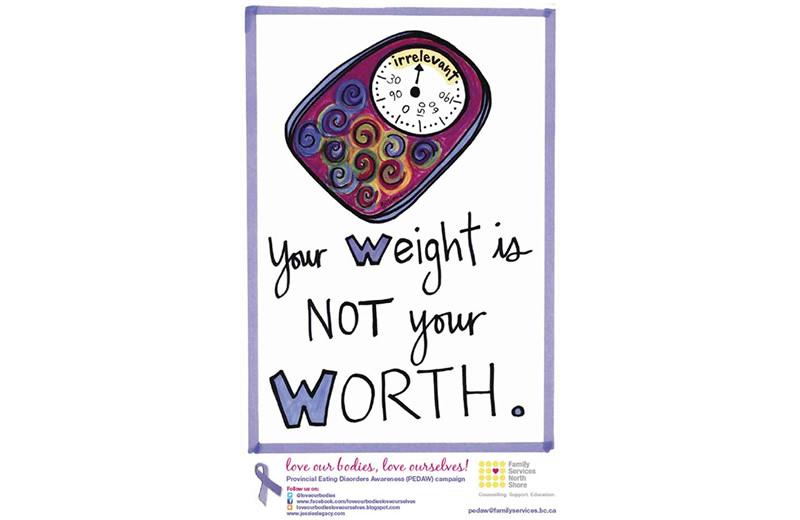This post was co-authored by Marianne Bloudoff (population health dietitian), Sandi DeWolf (Eating Disorders Clinic), and Marta Torok (Eating Disorders Clinic). It originally appeared in the spring issue of Healthier You magazine, which focused on the topic of women's health.
What is body image?
It is the way each of us perceives our physical appearance, and includes our thoughts and feelings about how we look. Our self-esteem, or sense of self-worth, is often closely linked with body image.
There are many things that can contribute to a negative body image. The mass media is one that many women can relate to. The media often presents women with an idealized image of female beauty that is impossible for the majority of women to attain. The images we often see are of thin, tall, photo-shopped women, who represent only one body type that few real-life women possess.
Body image is also influenced by family relationships, cultural beliefs, sports involvement, peers and past traumas. Women with a negative body image are more likely to suffer from depression, social isolation and low self-esteem.
Negative body image is a risk factor in developing disordered eating patterns and eating disorders. Up to 65% of women report engaging in disordered eating patterns and 10% of women display symptoms that meet the criteria of an eating disorder, such as anorexia or bulimia. The physiological and psychological effects of disordered eating can have significant impacts on a woman’s physical and mental health, interpersonal relationships, day-to-day functioning, and quality of life. Eating disorders are complex conditions that most often require professional intervention.
If you think that you or someone you love has an eating disorder, please contact the Northern Health Eating Disorders Clinic at 250-565-7479.
Understanding and awareness is important so women can understand how their own body image affects their life and others around them. Over one-half of teenage girls and nearly one-third of teenage boys use unhealthy weight control behaviors, such as food restriction.
Research has shown that daughters are more likely to have ideas about weight and dieting if their mothers participate in "fat talk" (self-degrading statements about one's body, food, or eating) or dieting. Children pay attention to what parents say and do, even if it doesn't seem like it. Parents are role models to their children, and can help support their children to focus less on their external appearance and more on overall wellness and personal successes.
There are many things women can do to improve their body image, such as:
- Appreciate everything your body can do, not what it can't.
- Choose to wear clothes that are comfortable and make you feel good.
- Focus your time and energy on positive things instead of worrying about food, calories, or weight.
- Remind yourself that true beauty is not defined by your physical appearance.
- View media messages with a critical eye.
Resources:
- Eating disorders - Women’s College Hospital
- Kelty Mental Health Resource Centre - BC Children's Hospital
- Love Our Bodies, Love Ourselves - Jessie's Legacy
- National Eating Disorder Information Centre (NEDIC)
- The Provincial Eating Disorders Awareness (PEDAW) campaign - Jessie's Legacy














Comments